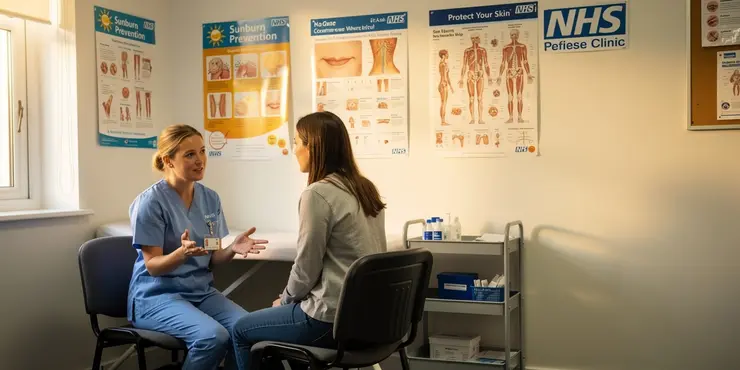
Find Help
More Items From Ergsy search
-
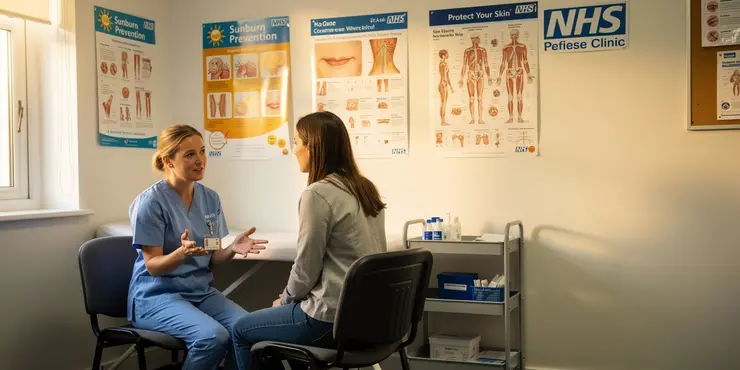
Are some people more prone to sunburn?
Relevance: 100%
-
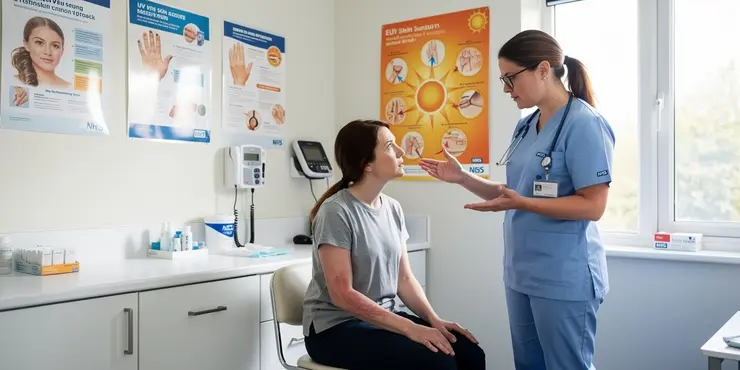
What causes sunburn?
Relevance: 62%
-

What is Sunburn?
Relevance: 61%
-
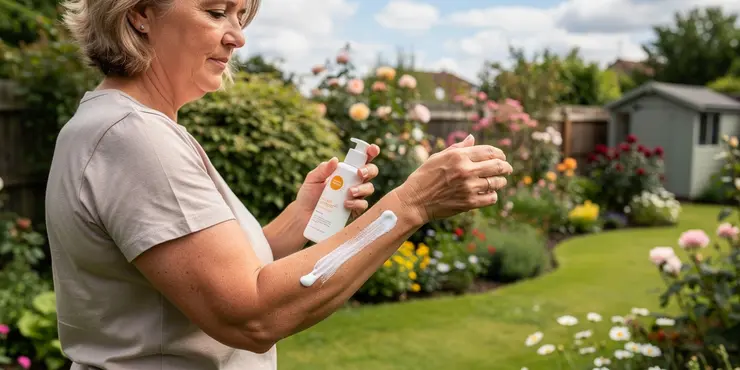
What are the long-term effects of sunburn?
Relevance: 58%
-
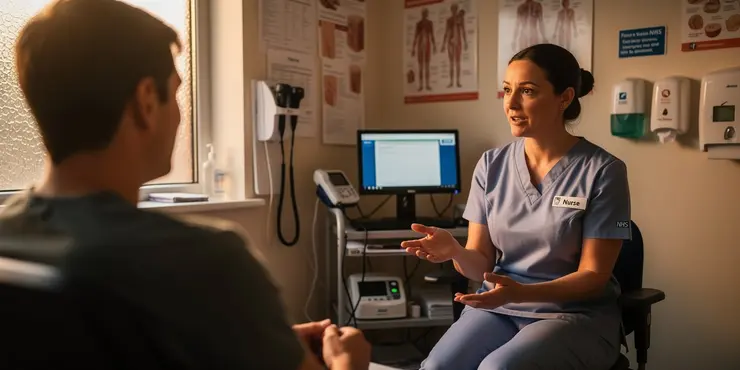
What is sunburn?
Relevance: 58%
-

How long does it take for sunburn to appear?
Relevance: 56%
-
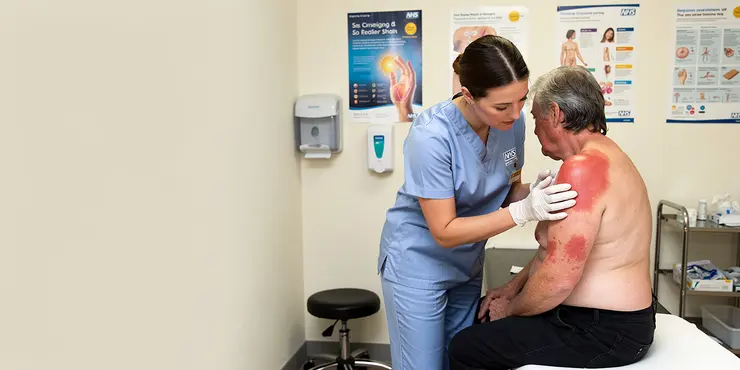
What are the symptoms of sunburn?
Relevance: 55%
-

Self care - sunburn
Relevance: 54%
-
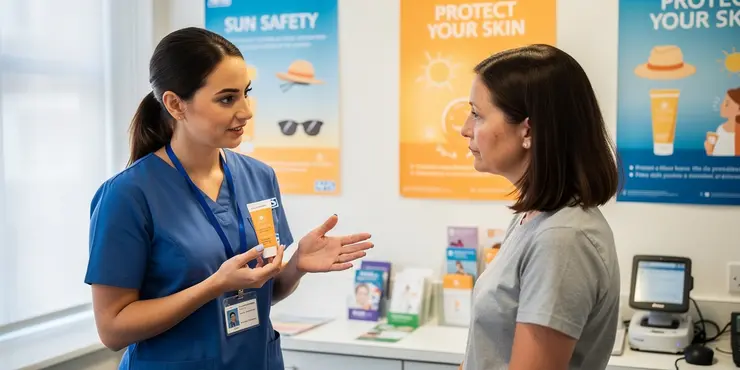
Can sunburn be prevented?
Relevance: 54%
-
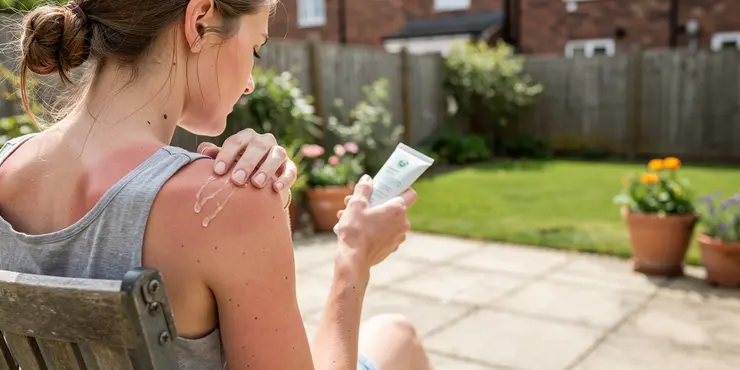
Self care - sunburn
Relevance: 54%
-
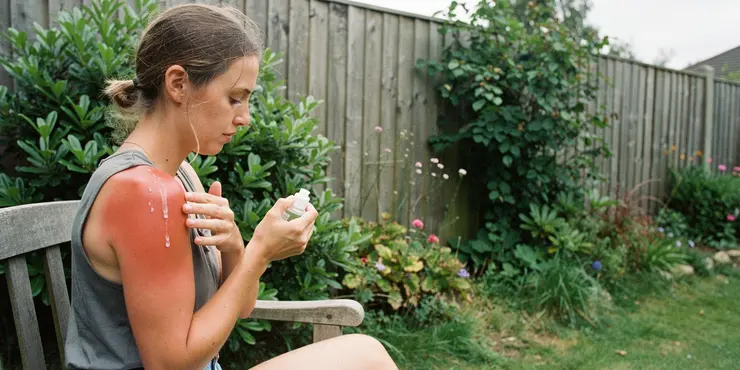
How is sunburn treated?
Relevance: 54%
-
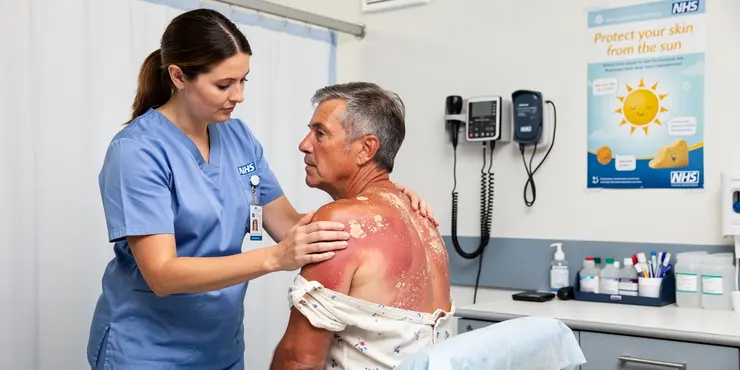
Can sunburn turn into a tan?
Relevance: 53%
-

Can sunburns cause permanent damage?
Relevance: 50%
-

What SPF level is recommended to prevent sunburn?
Relevance: 50%
-
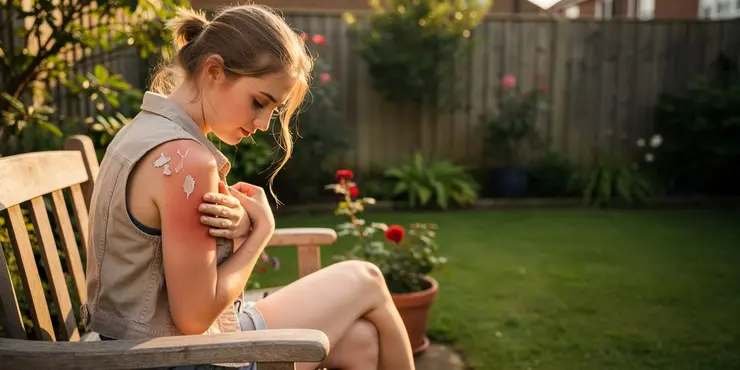
Is peeling a normal part of sunburn recovery?
Relevance: 50%
-
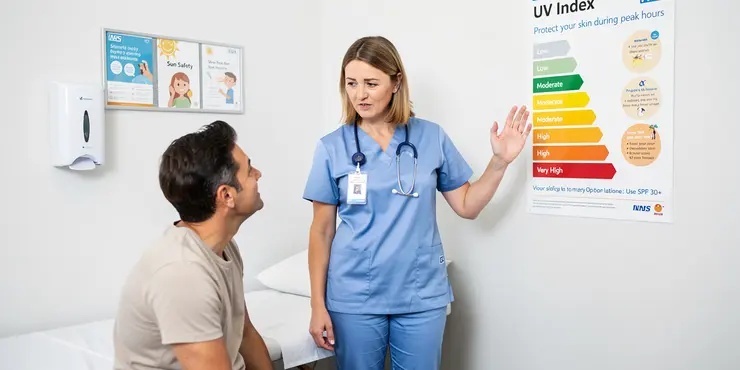
At what time of day is the sunburn risk highest?
Relevance: 49%
-
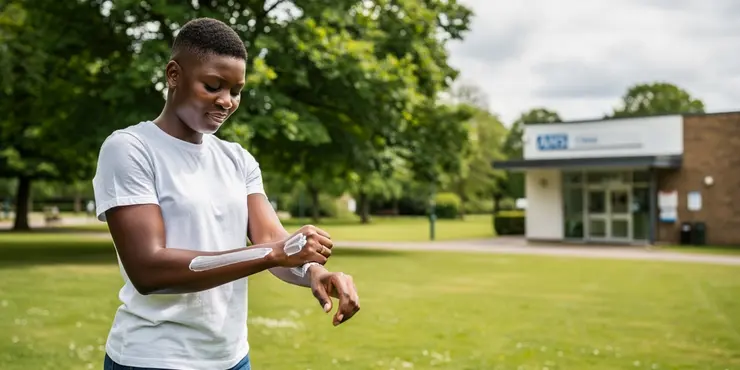
Can dark-skinned individuals get sunburned?
Relevance: 49%
-

Does tanning lotion prevent sunburn?
Relevance: 48%
-
Does tanning on sunbeds reduce the risk of future sunburns?
Relevance: 45%
-

Why are newborns more prone to jaundice than adults?
Relevance: 41%
-

Are some people more prone to hay fever?
Relevance: 39%
-

Does water reflect UV rays, increasing the risk of sunburn?
Relevance: 38%
-
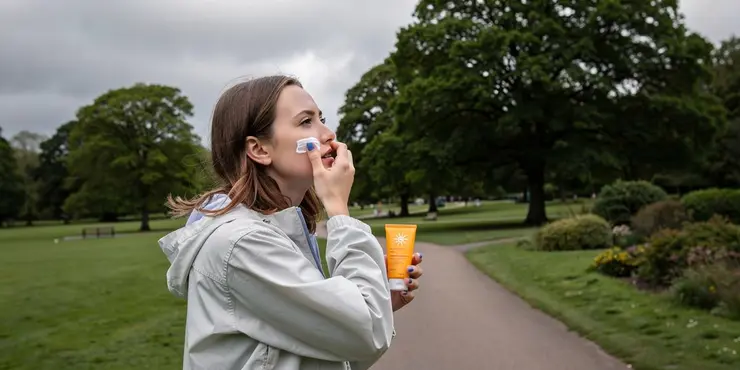
Is it possible to get sunburned on cloudy days?
Relevance: 36%
-

Why do some people not burn as easily as others?
Relevance: 35%
-

Are there specific banking services more prone to opaque fee structures?
Relevance: 34%
-

What to do if you're sunburnt
Relevance: 27%
-
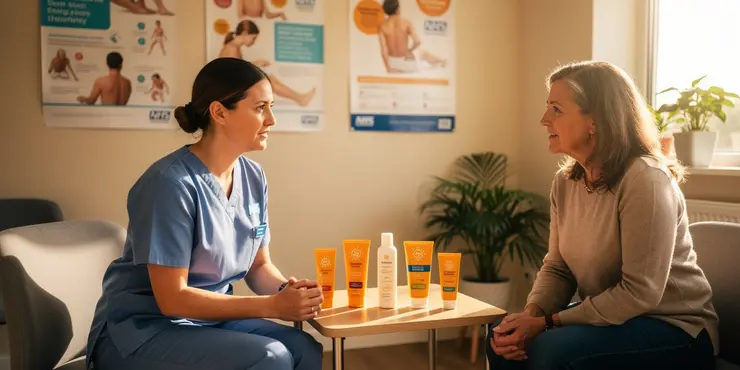
Which factor sunscreen should I use?
Relevance: 19%
-

What SPF should I use if I am going to be outdoors all day?
Relevance: 17%
-
Is pre-tanning in a sunbed a good way to prepare my skin for sun exposure?
Relevance: 16%
-
Do sunbeds provide a safer way to tan compared to natural sunlight?
Relevance: 16%
-

What is UV radiation?
Relevance: 16%
-
Is it safe to sunbathe a baby with jaundice?
Relevance: 16%
-

Do I need sunscreen on cloudy days?
Relevance: 14%
-

Does sunscreen expire?
Relevance: 14%
-

Why do babies get jaundice?
Relevance: 13%
-

Is it safe to take cold showers during a heatwave?
Relevance: 13%
-
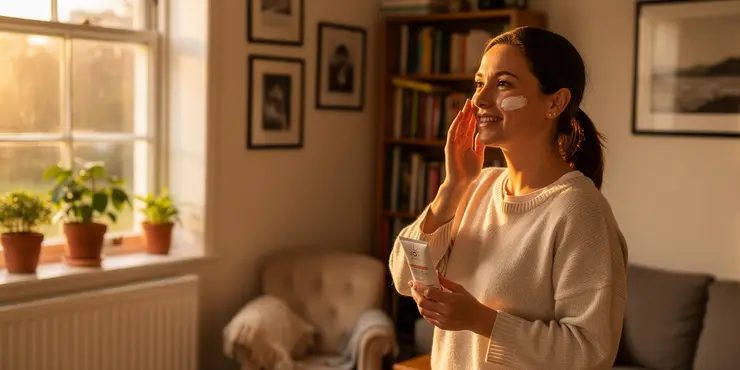
Is SPF 15 enough for everyday use?
Relevance: 13%
-

Can a stoma bag cause infections?
Relevance: 13%
-

What does SPF stand for?
Relevance: 13%
-
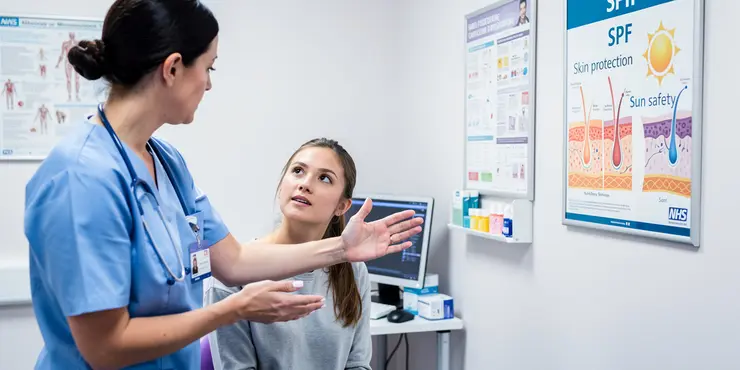
Should I use a different SPF for my face and body?
Relevance: 13%
Understanding Sunburn
Sunburn is a common issue that occurs when the skin is exposed to ultraviolet (UV) rays, primarily from the sun. Despite numerous warnings and advances in sun protection, many people continue to experience sunburn. A key question often arises: are some individuals more prone to sunburn than others? The answer is yes, and several factors contribute to this increased susceptibility.
Influence of Skin Type
Skin type plays a significant role in determining how prone a person is to sunburn. The Fitzpatrick skin type classification system categorizes skin into six types based on its reaction to sun exposure. People with skin type I or II, which includes those with fair skin, light-colored eyes, and red or blond hair, are more likely to burn than those with darker skin types. This is because lighter skin contains less melanin, the pigment responsible for absorbing and reflecting UV rays, providing less natural protection against sunburn.
Genetic Factors
Genetics can also influence one's likelihood of getting sunburned. Family history may predispose certain individuals to be more sensitive to UV radiation. Variations in genes that affect skin pigmentation and repair of UV-induced DNA damage can increase susceptibility. Some genetic disorders, such as albinism or xeroderma pigmentosum, severely reduce or eliminate melanin production or impair DNA repair mechanisms, significantly increasing the risk of sun damage and sunburn in affected individuals.
Geographical and Environmental Factors
Geographical location can influence sunburn risk. People living closer to the equator experience more intense UV radiation, increasing sunburn potential. Altitude also matters, as UV exposure rises with increased elevation. Environmental factors, such as reflective surfaces like water, sand, and snow, can reflect UV rays, intensifying exposure. Thus, individuals in certain regions or environments may need to take extra precautions against sunburn.
Behavioral and Lifestyle Factors
Lifestyle choices significantly affect sunburn risk. Individuals who spend considerable time outdoors, especially during peak UV hours, face higher sunburn risks. Inadequate use of sun protection, such as sunscreen, hats, sunglasses, and protective clothing, further increases susceptibility. Regular use of tanning beds also heightens sunburn risk due to concentrated UV exposure. People who neglect sun protection or ignore weather forecasts and UV index warnings are more likely to suffer from sunburn.
Conclusion
In summary, while anyone can get sunburned, some people are inherently more prone to it due to factors like skin type, genetics, geographical location, and lifestyle choices. Awareness and proactive sun protection are crucial for minimizing sunburn risk. Regardless of personal susceptibility, everyone should take appropriate measures to protect their skin from harmful UV exposure.
Frequently Asked Questions
Are some people more prone to sunburn?
Yes, certain individuals are more likely to get sunburned due to factors like skin type, genetics, and other personal characteristics.
What skin types are more prone to sunburn?
People with fair skin, light-colored eyes and hair are generally more prone to sunburn because they have less melanin, which provides some protection against UV rays.
How does melanin affect sunburn risk?
Melanin is a pigment in the skin that helps absorb UV radiation. Individuals with more melanin, such as those with darker skin tones, have more natural protection against sunburn.
Can genetics play a role in sunburn susceptibility?
Yes, genetics can influence skin type, melanin production, and other factors that affect an individual's risk of sunburn.
Are children more prone to sunburn than adults?
Children's skin is more sensitive than adults', making them more prone to sunburn. It's important to protect their skin with sunscreen and clothing.
Do certain medications increase the risk of sunburn?
Yes, some medications can increase sun sensitivity. These include certain antibiotics, anti-inflammatory drugs, and others. It's best to check with a doctor or pharmacist.
How does geographic location affect sunburn risk?
Living closer to the equator or at higher altitudes increases UV exposure and thus the risk of sunburn.
Does the time of year affect sunburn risk?
Yes, UV radiation is typically stronger during the summer months and between 10 a.m. and 4 p.m., increasing sunburn risk during these times.
Is it true that being in or near water can increase the likelihood of sunburn?
Yes, water can reflect sunlight, increasing UV exposure, and wet skin can be more susceptible to sunburn.
Can wearing certain types of clothing help prevent sunburn?
Wearing long sleeves, hats, and clothing with tightly woven fabric can protect the skin from UV rays and reduce the risk of sunburn.
Do people with certain medical conditions have a higher risk of sunburn?
Yes, certain conditions such as lupus or albinism can make individuals more sensitive to the sun and prone to sunburn.
Can diet influence susceptibility to sunburn?
While diet alone won't prevent sunburn, nutrients like antioxidants can help protect skin cells from UV damage. However, sun protection measures like sunscreen remain crucial.
How can sunscreen help reduce the risk of sunburn?
Sunscreens with a high SPF can protect the skin by blocking or absorbing UV rays, thus reducing the risk of sunburn.
Are people with a history of skin cancer at greater risk for sunburn?
Yes, individuals with a history of skin cancer should be particularly cautious about sun exposure to prevent further skin damage.
Does the use of tanning beds affect sunburn risk?
Tanning beds emit UV radiation that can increase the risk of skin damage and sunburn, even though the tan might seem to offer protection.
How does age influence sunburn risk?
Both very young children and the elderly have more sensitive skin, which can increase the risk of sunburn.
Can certain skin care products increase sunburn risk?
Yes, products containing retinoids or alpha-hydroxy acids can increase skin sensitivity to the sun, heightening the risk of sunburn.
What role does altitude play in sunburn risk?
At higher altitudes, the atmosphere is thinner and less able to filter UV rays, increasing exposure and the risk of sunburn.
Can previous sun exposure affect future sunburn risk?
Yes, skin that has been sun-damaged previously can be more susceptible to further damage, including sunburn.
Is it possible for people with naturally tan skin to get sunburned?
Yes, while people with tan or dark skin have more natural protection due to higher melanin levels, they can still get sunburned if exposed to enough UV radiation.
Useful Links
This website offers general information and is not a substitute for professional advice.
Always seek guidance from qualified professionals.
If you have any medical concerns or need urgent help, contact a healthcare professional or emergency services immediately.
Some of this content was generated with AI assistance. We’ve done our best to keep it accurate, helpful, and human-friendly.
- Ergsy carfully checks the information in the videos we provide here.
- Videos shown by Youtube after a video has completed, have NOT been reviewed by ERGSY.
- To view, click the arrow in centre of video.
- Most of the videos you find here will have subtitles and/or closed captions available.
- You may need to turn these on, and choose your preferred language.
- Go to the video you'd like to watch.
- If closed captions (CC) are available, settings will be visible on the bottom right of the video player.
- To turn on Captions, click settings .
- To turn off Captions, click settings again.
More Items From Ergsy search
-

Are some people more prone to sunburn?
Relevance: 100%
-

What causes sunburn?
Relevance: 62%
-

What is Sunburn?
Relevance: 61%
-

What are the long-term effects of sunburn?
Relevance: 58%
-

What is sunburn?
Relevance: 58%
-

How long does it take for sunburn to appear?
Relevance: 56%
-

What are the symptoms of sunburn?
Relevance: 55%
-

Self care - sunburn
Relevance: 54%
-

Can sunburn be prevented?
Relevance: 54%
-

Self care - sunburn
Relevance: 54%
-

How is sunburn treated?
Relevance: 54%
-

Can sunburn turn into a tan?
Relevance: 53%
-

Can sunburns cause permanent damage?
Relevance: 50%
-

What SPF level is recommended to prevent sunburn?
Relevance: 50%
-

Is peeling a normal part of sunburn recovery?
Relevance: 50%
-

At what time of day is the sunburn risk highest?
Relevance: 49%
-

Can dark-skinned individuals get sunburned?
Relevance: 49%
-

Does tanning lotion prevent sunburn?
Relevance: 48%
-
Does tanning on sunbeds reduce the risk of future sunburns?
Relevance: 45%
-

Why are newborns more prone to jaundice than adults?
Relevance: 41%
-

Are some people more prone to hay fever?
Relevance: 39%
-

Does water reflect UV rays, increasing the risk of sunburn?
Relevance: 38%
-

Is it possible to get sunburned on cloudy days?
Relevance: 36%
-

Why do some people not burn as easily as others?
Relevance: 35%
-

Are there specific banking services more prone to opaque fee structures?
Relevance: 34%
-

What to do if you're sunburnt
Relevance: 27%
-

Which factor sunscreen should I use?
Relevance: 19%
-

What SPF should I use if I am going to be outdoors all day?
Relevance: 17%
-
Is pre-tanning in a sunbed a good way to prepare my skin for sun exposure?
Relevance: 16%
-
Do sunbeds provide a safer way to tan compared to natural sunlight?
Relevance: 16%
-

What is UV radiation?
Relevance: 16%
-
Is it safe to sunbathe a baby with jaundice?
Relevance: 16%
-

Do I need sunscreen on cloudy days?
Relevance: 14%
-

Does sunscreen expire?
Relevance: 14%
-

Why do babies get jaundice?
Relevance: 13%
-

Is it safe to take cold showers during a heatwave?
Relevance: 13%
-

Is SPF 15 enough for everyday use?
Relevance: 13%
-

Can a stoma bag cause infections?
Relevance: 13%
-

What does SPF stand for?
Relevance: 13%
-

Should I use a different SPF for my face and body?
Relevance: 13%


